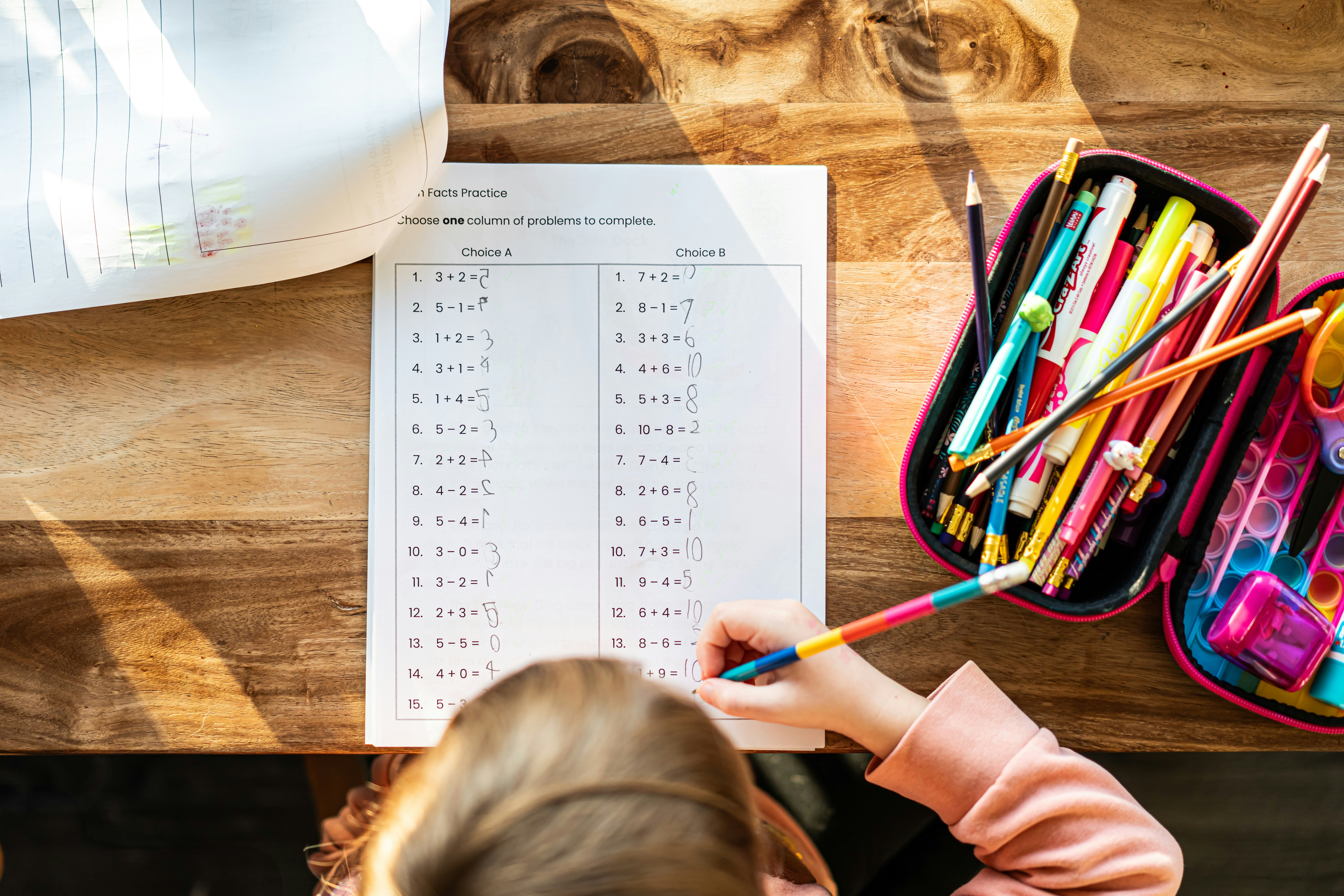News release
From:
Social sciences: Early childhood gender gap in mathematics performance
A maths-performance gender gap in favour of boys is apparent after four months of schooling, according to an analysis of nearly three million first and second grade students in France. The findings are published in a paper in Nature.
Previous research has illustrated a gap between male and female children in mathematical performance beginning in early education, as observed in American and French cohorts. Although these studies have sought to understand why this gap emerges, whether it be the attitude of parents and teachers (such as gender stereotypes) or maths anxiety (which is more common in girls), these results are dated.
Pauline Martinot and colleagues analysed data from 2,653,082 first and second grade children (aged 5 to 7 years old) in France from a national evaluation program administered from 2018 to 2022. The researchers found that there was virtually no difference in average maths performance between male and female students upon the beginning of school, but after only four months, a notable gap between the two genders appeared, in favour of boys. This gap had quadrupled in size at the beginning of 2nd grade. Martinot and colleagues found that the variation in student scores was observed across the entirety of France and was independent of socioeconomic status, the type of maths test administered, and whether the school was public or private.
The authors note that a key limitation of their study is that they only observed data taken at three points in time: the beginning of the school year, four months later, and one year later. As such, granular details cannot be obtained on how the maths gender gap changes with time, which limits the possibility to generate specific mechanisms that cause the gap. Martinot and colleagues suggest that policymakers should consider addressing this gap as early in a student’s education as possible, such as kindergarten
Expert Reaction
These comments have been collated by the Science Media Centre to provide a variety of expert perspectives on this issue. Feel free to use these quotes in your stories. Views expressed are the personal opinions of the experts named. They do not represent the views of the SMC or any other organisation unless specifically stated.
Professor Jodie Hunter, Institute of Education, Massey University, comments:
This study supports what earlier research has shown about something called ‘brilliance bias’, the idea that doing well in subjects like mathematics, physics and other sciences is about having natural talent or being innately brilliant. What is interesting is that younger children often believe their own gender or group is the smartest at these subjects, but as they get older and move through schooling this begins to change. They begin to associate success in mathematics and science subjects with certain groups, unfortunately, those groups often don’t include girls or students from marginalised communities.
"This research is highly relevant for us here in Aotearoa and across the Pacific given that we see ongoing disparities in achievement, particularly for Māori and Pacific students. Research suggests that part of the problem is a lack of recognition for the strengths and knowledge that these students being into the classroom. It would be beneficial to see further research that looks at how we can support teachers and students to see everyone as capable of doing mathematics.



 International
International



